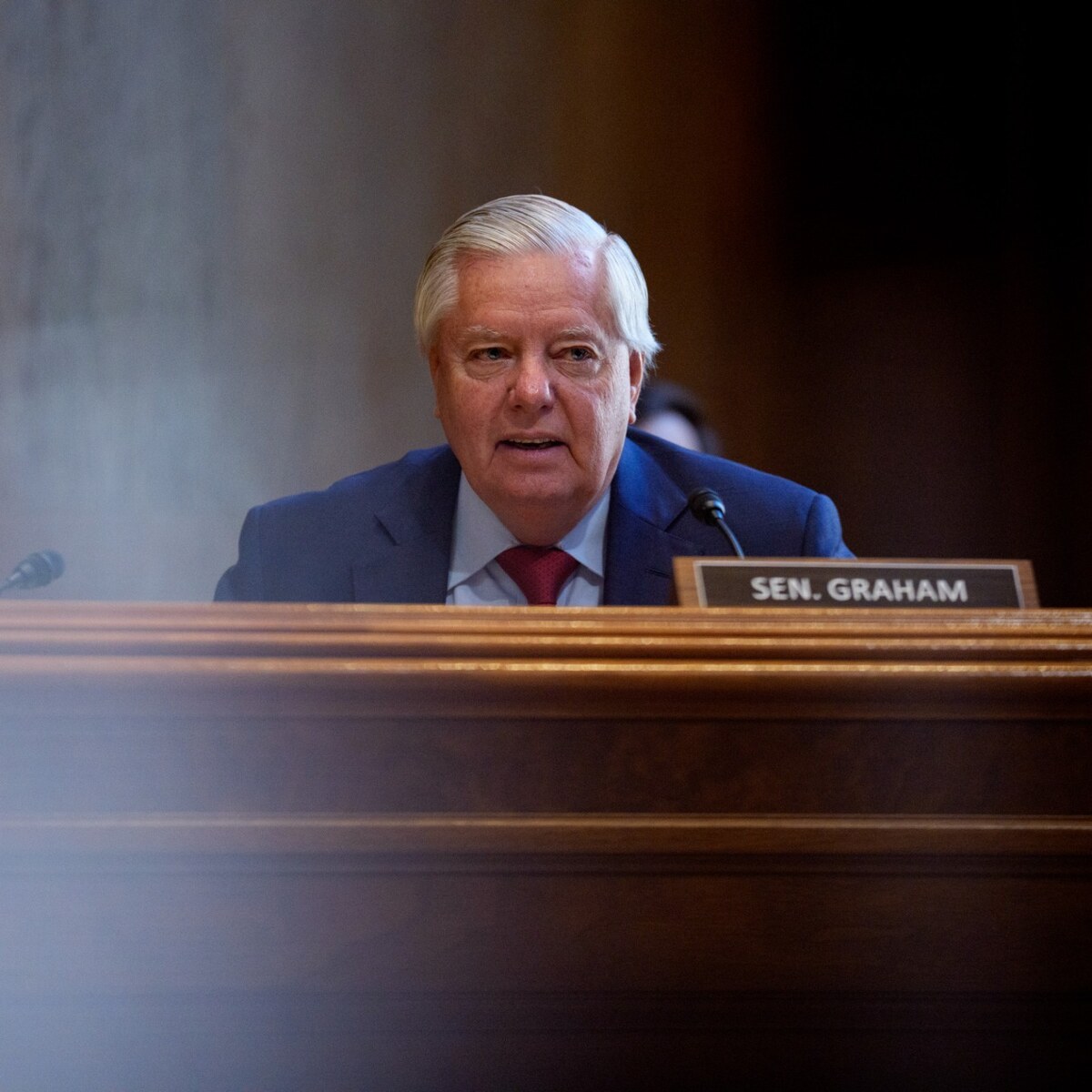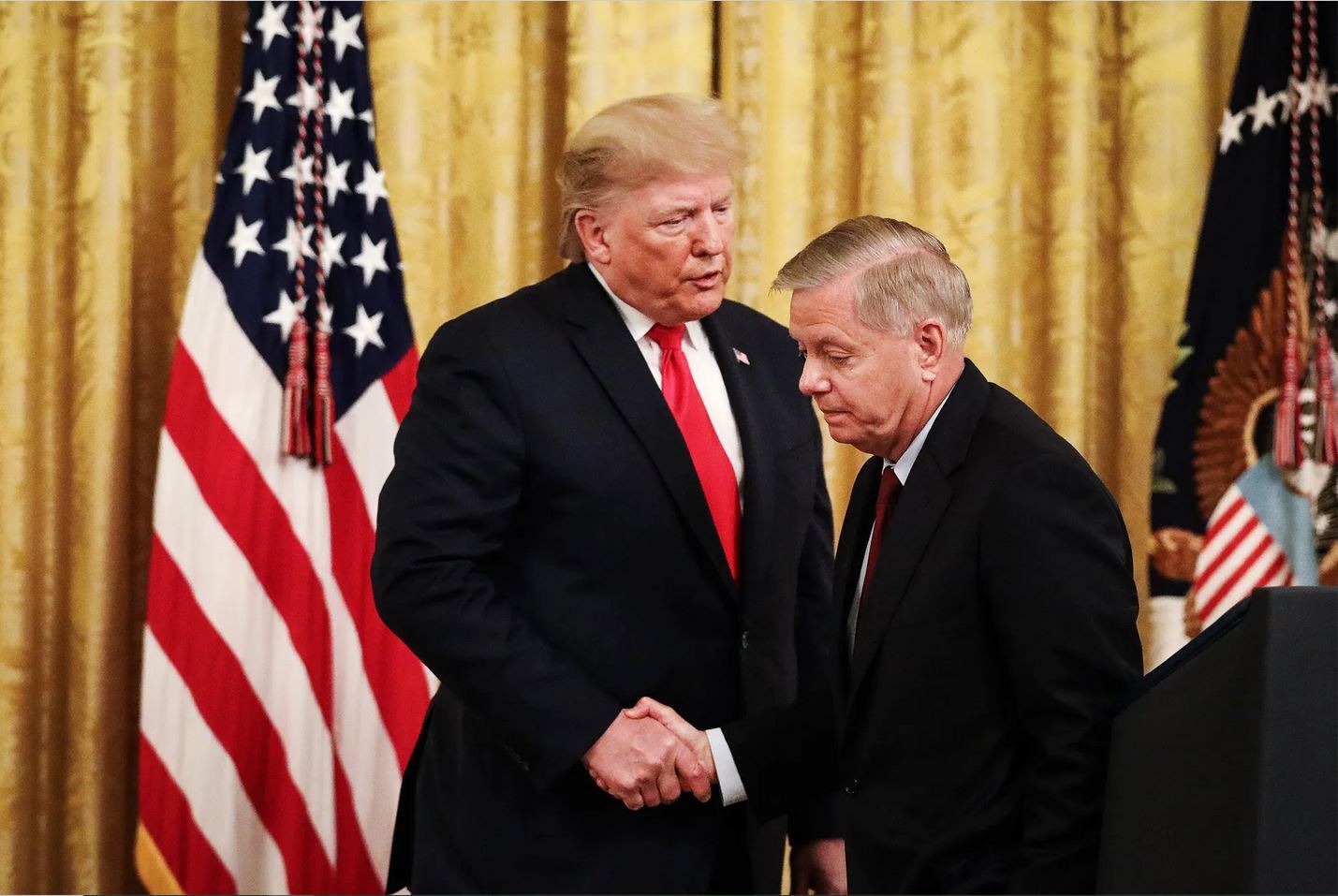The war hawk and the president: How Lindsey Graham shaped Trump’s middle east policy?

Lindsey Graham, the hawkish Republican senator who advocated for President Donald Trump to attack Iran, used one of the methods he had employed during their nearly decade-long tumultuous friendship to persuade him: appealing to Trump’s desire for recognition.
In an interview, Graham said: “What Trump was thinking—and what I kept telling him—was that if he did this, it would compensate for the damage caused by President Joe Biden’s withdrawal from Afghanistan. I told him that Israel had done an outstanding job, but we also needed to leave our footprint in this affair. It’s in our national security interest to be a part of it.”
In a report about the Republican senator from South Carolina, The Wall Street Journal wrote: “Today in Washington, Graham holds a unique position; he is one of Trump’s most influential advisors on national security while simultaneously maintaining strong ties with Democrats in support of Ukraine and in pressuring Russian President Vladimir Putin.” Yet, he also angers Trump’s base and has one of the most strained—and at times humiliating—relationships with the former president.
According to the American newspaper, Trump ordered an attack on three nuclear sites in Iran earlier last week, despite many warning him about dragging the U.S. into yet another war in the Middle East. But Graham described the move as “bold” and “brilliant.”
Graham, a former lawyer in the U.S. Air Force, has spent years pushing for a more aggressive stance toward the Islamic Republic of Iran and has been one of the loudest voices urging Trump to strike. His extremism—including calls for regime change in Iran—has long made him an enemy among many of Trump’s associates.
A dangerous influence on the U.S.
Steve Bannon, Trump’s former advisor who lobbied against the military action during a White House lunch shortly before the strike, said Graham should be arrested or have his passport revoked to prevent him from meddling in other countries' affairs.
Former Fox News host Tucker Carlson also recently stated that Graham’s influence on the United States is “deeply destructive.”
However, Anna Kelly, the White House Deputy Press Secretary, rejected the criticism in a statement, declaring Graham “an extraordinary ally” of the administration.
Golfing with Trump
The Wall Street Journal also pointed to Trump’s passion for golf and his years of playing with Graham, quoting the senator as saying that about a week before the attack, he told Trump: “If you want to strike, you need to use one more club than you think you need.”
According to the newspaper, during that meeting, Graham also warned Trump about the danger of Iran acquiring nuclear weapons, claiming that unlike Russia or North Korea, Iran would actually use a nuclear weapon for a preemptive strike against the U.S.
Graham further stated that Iran must recognize Israel’s existence as a prerequisite for negotiations.

On Saturday, after another round of golf with Trump, Graham responded to a question about whether the U.S. would join Israel in any future military action against Iran by saying it “depends on the circumstances.” Trump has also stated that if Iran resumes its nuclear activities, he is ready to strike again, and Graham believes Trump would not need congressional approval.
This viewpoint has been fiercely contested. Democrats unsuccessfully attempted on Friday to pass a resolution requiring Trump to obtain congressional approval before involving the U.S. in any conflict with Iran.
Graham’s efforts come despite the consensus among U.S. intelligence agencies that Iran has not decided to build a bomb. This assessment was reiterated by Tulsi Gabbard, the U.S. Director of National Intelligence, in her congressional testimony in March.
Graham, now 69, has long been at the center of shaping U.S. policy in the Middle East. Shortly before Israel launched its attacks on Gaza on October 7, 2023, Graham was working with a bipartisan group of senators and the Biden administration on a plan to normalize relations between Israel and Saudi Arabia to supposedly ensure lasting peace in the region.
After the war in Gaza broke out, Graham brought together a group of five Republicans and five Democrats—including Cory Booker, a Republican senator, and Ben Cardin, a Democratic senator from Maryland and then-chair of the Foreign Relations Committee—to travel to Saudi Arabia and the occupied territories, aiming to demonstrate U.S. support not only for Israel but also for reconciliation between Israel and the Arab world.
Hockey and Golf
The Wall Street Journal also examined the history of the relationship between Graham and Trump, noting that it began when both ran for president in 2016. Graham built his campaign on national security experience, a more aggressive U.S. role in the Middle East, and fierce opposition to the Iran nuclear deal. He called Trump “the biggest jackass in the world” and accused him of “racism, xenophobia, and religious bigotry.”
Trump responded by calling Graham “one of the dumbest people I’ve ever met,” saying, “You’ll start World War III with a guy like that.” Graham soon dropped out of the race, and Trump united voters around his new vision for the Republican Party.

A former Graham aide once described their relationship as resembling a hockey match: they’d hit each other hard, then play golf together the following weekend.
Ralph Reed, president of the conservative Faith and Freedom Coalition, said Graham has a unique and important relationship with Trump. “Access in Washington is the most valuable currency you can have,” he said, “and Graham’s access is like gold.”